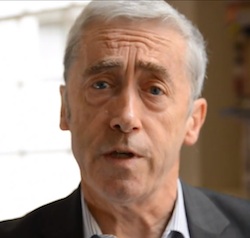Anannya, Ο. (2014) “The Debate About Integration“, Politics in Britain – Ideas on Europe, 25 Σεπτεμβρίου. Integration of migrants in the United Kingdom, more culturally and socially different than British people, can give way to creating a much more diverse society. It would beget stronger communities of people more aligned to British interests and more eager to erase out the presence of any form of extremism, prejudice or intolerance towards …Read More
Why Merkel’s Foreign Policy For Eastern Europe Is Failing
Hill, S. (2014) “Why Merkel’s Foreign Policy For Eastern Europe Is Failing“, Social Europe Journal, 23 Σεπτεμβρίου. The fragile cease-fire in eastern Ukraine provides an opportunity for political leaders to reflect on how we arrived at this dangerous place of Cold War-like tensions between Russia, Europe and the United States. From Washington DC to Berlin to Warsaw, western leaders are scrambling to figure out where to go from here. Chancellor …Read More
Europe’s Bargain
Spence, M. (2014) “Europe’s Bargain“, Project Syndicate, 19 Σεπτεμβρίου. In July, the European Commission published its sixth report on economic, social, and territorial cohesion (a term that can be roughly translated as equality and inclusiveness). The report lays out a plan for substantial investment – €450 billion ($583 billion) from three European Union funds – from 2014 to 2020. Given today’s difficult economic and fiscal conditions, where public-sector investment …Read More
Germany is undermining future growth
The European Magazine: Conversations, Interview with Philippe Legrain, “Germany is undermining future growth”, 20 Σεπτεμβρίου 2014. Europe is experiencing one of its biggest crises ever. As former chief economic adviser to Manuel Barroso, Philippe Legrain was right at the heart of it. He told Christoph Hosang why the policy response to the eurozone crisis has been catastrophic and what kind of alternative approach is needed. © Private Photo …Read More
Dying for Europe
Sutherland, P. (2014) “Dying for Europe“, Project Syndicate, 19 Σεπτεμβρίου. This summer, a gruesome tragedy unfolded aboard a ship in the Mediterranean Sea. Twenty-nine men, women, and children fleeing crisis-torn countries succumbed to engine fumes in the vessel’s hold. As 60 others scrambled to escape, the human traffickers carrying them to Europe stabbed them and threw them into the sea off the coast of Lampedusa. Eventually, a Danish petrol …Read More
Is the peace narrative really obsolete?
Sonntag, Α. (2014) “Is the peace narrative really obsolete?“, EU-Asia Institute, ESSCA School of Management, 22 Σεπτεμβρίου. Efforts such as Rethinking Economics and The Institute for New Economic Thinking are noteworthy attempts to, as INET says, “broaden and accelerate the development of new economic thinking that can lead to solutions for the great challenges of the 21st century. The havoc wrought by our recent global financial crisis has vividly …Read More
Can New Economic Thinking Solve the Next Crisis?
Thoma, M. (2014) “Can New Economic Thinking Solve the Next Crisis?“, The Fiscal Times, 16 Σεπτεμβρίου. Efforts such as Rethinking Economics and The Institute for New Economic Thinking are noteworthy attempts to, as INET says, “broaden and accelerate the development of new economic thinking that can lead to solutions for the great challenges of the 21st century. The havoc wrought by our recent global financial crisis has vividly demonstrated …Read More
The world’s happiest nations, in one map
German, L. (2014)”The world’s happiest nations, in one map“, Vox Media, 18 Σεπτεμβρίου. North America and South America make up the world’s happiest region, according to a new report from Gallup and Healthways. The report looked at five elements of well-being: sense of purpose, social life, finances, community, and physical health. Respondents from 135 countries self-reported their satisfaction with these elements, and Gallup and Healthway then compiled the results into their …Read More
What we Didn’t Learn from the Economic Crisis
Kurtzleben, D. (2014) “What we Didn’t Learn from the Economic Crisis“, Vox Media, 12 Σεπτεμβρίου. In the years since the financial crisis, countries have struggled to remove the causes of the most recent financial crisis. Thus far, they have failed. That’s the view of Martin Wolf, associate editor and chief economics commentator at the Financial Times. In his new book, The Shifts and the Shocks, Wolf examines what we’ve learned …Read More
Stop Structural Reforms and Start Public Investment in Europe
De Grauwe, P. (2014) “Stop Structural Reforms and Start Public Investment in Europe“, Social Europe Journal, 17 Σεπτεμβρίου. Slow growth in the Eurozone has become endemic since the start of the sovereign debt crisis in 2010. This is made very clear in Figure 1, which contrasts the growth experience of the Eurozone with the non-Eurozone EU-member countries since the start of the financial crisis in 2007. What is striking …Read More





